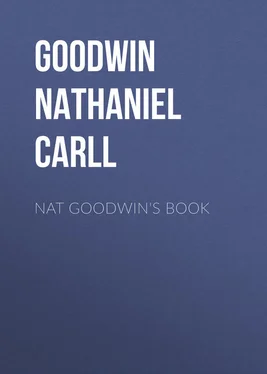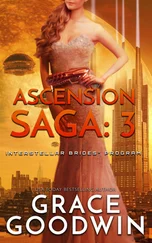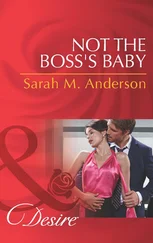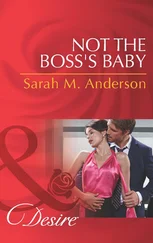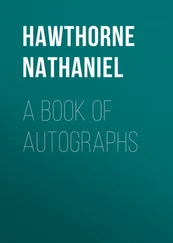Nathaniel Goodwin - Nat Goodwin's Book
Здесь есть возможность читать онлайн «Nathaniel Goodwin - Nat Goodwin's Book» — ознакомительный отрывок электронной книги совершенно бесплатно, а после прочтения отрывка купить полную версию. В некоторых случаях можно слушать аудио, скачать через торрент в формате fb2 и присутствует краткое содержание. Издательство: Иностранный паблик, Жанр: foreign_antique, foreign_prose, на английском языке. Описание произведения, (предисловие) а так же отзывы посетителей доступны на портале библиотеки ЛибКат.
- Название:Nat Goodwin's Book
- Автор:
- Издательство:Иностранный паблик
- Жанр:
- Год:неизвестен
- ISBN:нет данных
- Рейтинг книги:5 / 5. Голосов: 1
-
Избранное:Добавить в избранное
- Отзывы:
-
Ваша оценка:
- 100
- 1
- 2
- 3
- 4
- 5
Nat Goodwin's Book: краткое содержание, описание и аннотация
Предлагаем к чтению аннотацию, описание, краткое содержание или предисловие (зависит от того, что написал сам автор книги «Nat Goodwin's Book»). Если вы не нашли необходимую информацию о книге — напишите в комментариях, мы постараемся отыскать её.
Nat Goodwin's Book — читать онлайн ознакомительный отрывок
Ниже представлен текст книги, разбитый по страницам. Система сохранения места последней прочитанной страницы, позволяет с удобством читать онлайн бесплатно книгу «Nat Goodwin's Book», без необходимости каждый раз заново искать на чём Вы остановились. Поставьте закладку, и сможете в любой момент перейти на страницу, на которой закончили чтение.
Интервал:
Закладка:
I think that Irving had a wider knowledge than any man whom I have ever met in the theatrical world. So much has been written by able writers regarding this remarkable man's abilities that anything that emanates from me will seem puerile in comparison.
Irving's humor always appealed to me, his sense of it ever being in evidence no matter how serious the surroundings. His utterances were subtly humorous and at times a little cynical, but never harsh, his gentleness of delivery always disguising the little cynicisms that might lurk beneath them.
I remember lunching with him one afternoon at the Garrick Club. An actor named Kemble came in, a little under the influence of the succulent grape, and began bewailing the decline of the drama. He expatiated upon the downward trend of the player, expressing great dissatisfaction over the then present conditions and his desire to "chuck it." He preferred solitude, away from the incompetency that he was forced to witness. He would like to build a shack and relieve himself from all these humiliating associations on some desert island. Irving, calmly wiping his glasses, looked at him for a moment and asked, "Why not try one of the Scilly Islands?"
Another time an awful bore, one Fletcher, whom Irving detested, rushed up to him in a most affectionate manner, saying, "My dear Harry! whom do you suppose I met in Paris, last week?" Irving replied, "I have no idea. Paris is so filled with people." Fletcher continued, "I know, dear Harry, but it was our old friend Graham – Charlie! You remember him." Irving grunted, "Ah!" Fletcher rattled on. "Well, Harry, you know we had not met for years and he accosted me right in front of the Louvre and placing both hands upon my shoulders he said, 'Great God! is this really Fletcher?'" Irving quietly looked up and queried, "And was it?"
We passed many happy evenings, together with dear old Johnny Toole, at the Beefsteak Club. I look back with pleasure upon those improvised little suppers Irving used to bestow upon the visiting Americans and his fellow players upon the stage of the Lyceum after the evening performance. I have never seen such unostentatious, yet lavish, display as he exercised in those delightful hospitalities. They extended far into the night and many times the sun was up as he, Toole and I made the rounds of the Covent Garden Market where the butchers and fruit venders were as friendly disposed towards him as were the guests of the previous evening.
I never knew when Irving slept.
The last time we met was in his dressing-room at the Broadway Theatre, New York. I had just produced "A Midsummer Night's Dream" at a great outlay – a new experience for me at the time – investing a fortune on the production before receiving the verdict of the capricious public. It was an old story with Irving. As I shook hands with him he said, "Ah! Goodwin, my boy, I see you are indulging in a little Monte Carlo around the corner." I answered, "Yes, Sir Henry, I have a big bet down on the single 0." "Well," said he, "this business is a fascinating gamble no matter where the little ivory ball may land."
The little ivory ball proved in the end very disappointing to this splendid player who did so much to dignify our art. For when the ball fell into the single "0" Sir Henry's bet was on the black, No. 23. Had he lived he would have found it impossible to indulge again in the dissipation of costly productions.
Chapter VI
"BARRY" AND JEFFERSON
The world delights in sunny people."
I recall many.
Maurice Barrymore, actor, playwright, raconteur, gentleman, all-around athlete and man of the world, was the most effulgent man whom I have ever met. A brain that scintillated sparks of wit that Charles Lamb or Byron might envy, a tongue capable of lashing into obscurity any one who dared enter into verbal conflict with him (yet always merciful to his adversary), with the wit of Douglas Jerrold without the cynicism, the courage of a lion, the gentleness of a saint – there you have but a faint conception of the qualities of this child of Bohemia. I knew him for twenty-five years and in all the many hours that we spent together I never saw him out of temper, never heard him utter one unkind expression nor speak a cruel word. Even under the most trying conditions he seldom permitted himself to use his rapier. And his muscle and brawn were always subordinates, servants, never masters.
Fate hardly played fair with Barry. Perhaps the fickle jade was fearful to bestow her best upon one whom the gods had created so powerfully brilliant. She allowed his genius to run purposelessly upon the sands of time until, jealous of the admiration which he won from all, she robbed him of his chief asset and hurled his fine mind from the cliffs of reason.
I shall not dwell upon the passing away of this remarkable man – it is too terrible to recall – but I shall give the world a few of his quips and jibes, showing his brilliant wit.
He gave the world much – a powerful play, "Nadjesda," sunshine and happiness and a legacy of three brilliant children, whom I knew as Barry's babies, whom I love for their own and their father's and mother's sakes —
Ethel, John and Lionel – I greet you all!
Barry came into the Lambs Club one evening evidently much distressed. Asked the reason, he answered "I am terribly annoyed and excessively angry at the brutal treatment of Mrs. Bernard Beere by the press of New York."
Barry was the leading man of Mrs. Beere's organization, the recipient of three hundred dollars a week and, in the foreshadowing of that lady's failure in a rather risqué play, "As in a Looking Glass," felt his engagement trembling in the balance.
"Brutal!" quoth the loquacious and severe Lackaye. "It was thoroughly deserved! I was there and I never saw such an immoral play in my life before a civilized community!"
"Granted," replied Barrymore, "but why censure the lady personally, a foreigner as well? We can at least be courteous. Only the offensive theme of the play was dwelt on; no attention was paid to her finesse and subtle art. That was all lost, due to the huge playhouse in which we were forced to appear. Hammerstein's was never intended to house acting that requires such delicate treatment; it should be devoted to opera, or the circus. Nothing ever gets beyond the third of fourth row."
"Which is most fortunate," replied Lackaye. "You punish the musicians, and save the remaining rows, the suffering endured by those closer to the actors. I am no prude, but I felt the blush of shame mounting to my cheeks as the terrible and unwholesome dialogue came over in chunks."
"My boy," said Barrymore, "you don't comprehend the theme of that play. Dialogue amounts to nothing when problems are to be solved. Maybe the language suffered in the adaption but that does not palliate the offense perpetrated upon the lady who was endeavoring to perform a duty and teach a lesson by her consummate art."
"You call that art," asked Lackaye, "a wanton, expounding her amorous successes? What edification can that give? I tell you, Barrymore, you may be all right in your argument but the performance was simply nauseating, nasty and suggestive. The whole thing reeked with filth!"
"I know," said Barrymore, quickly but quietly, "but you fail to realize, my dear Lackaye, that Hammerstein's is a theatre where one may be obscene and not heard."
Barry was chided by one of his friends for not going to see Sothern's "Hamlet" which he was playing for the first time at the Garden Theatre with mediocre success.
"Why don't you go and witness a performance?" asked a friend. "Go and sit out only one act."
Barrymore replied, "My boy, I never encourage vice."
Dear old Frank Mayo who was passionately fond of argument, after exchanging the usual greetings with Barrymore one afternoon, soon became engaged in a very heated controversy. Mayo would project an idea and before Barrymore could get breath enough to answer would spring another. Mayo had put several vital questions to Barry to his own entire satisfaction and answered them with equal satisfaction before Barry had a chance even to offer a reply.
Читать дальшеИнтервал:
Закладка:
Похожие книги на «Nat Goodwin's Book»
Представляем Вашему вниманию похожие книги на «Nat Goodwin's Book» списком для выбора. Мы отобрали схожую по названию и смыслу литературу в надежде предоставить читателям больше вариантов отыскать новые, интересные, ещё непрочитанные произведения.
Обсуждение, отзывы о книге «Nat Goodwin's Book» и просто собственные мнения читателей. Оставьте ваши комментарии, напишите, что Вы думаете о произведении, его смысле или главных героях. Укажите что конкретно понравилось, а что нет, и почему Вы так считаете.
